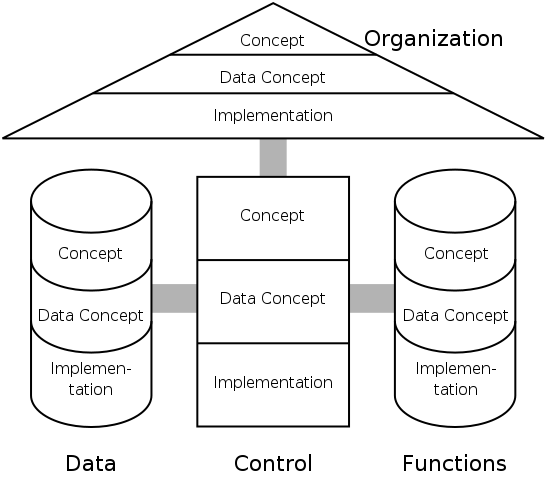Why Should You Customize ARIS for Your Organization?
Within our consulting portfolio the Process Management Paradigm is playing a very important role and the tool to support those activities has been ARIS all the way long. Today we will provide you with some additional information about the facts that stay behind our favourite tool of Software AG. Enjoy!
What is ARIS?
The Architecture of Integrated Information Systems, or ARIS, is an approach to enterprise modelling. It is based on methods for analyzing processes and relies on a holistic view of process design, management and workflow. The ARIS provides a generic methodological framework and a business process modelling tool.
It has become widely popular because of its configurability – it can be customized to meet each business’s individual requirements. ARIS uses a modeling language known as Event Driven Process Chain (EPC). It brings various aspects of enterprise modelling together.
It was designed in the 1990s by August-Wilhelm Scheer and was meant to illustrate the continuous process improvement on the basis of actual performance. The ARIS approach helps in organizing information in five forms: data, function, organization, output and control. Based on these common views, as it was already mentioned, the approach can be configured and set up for all types of business.
Nowadays, it is considered as one of the best enterprising tools. Business process modelling is regarded as an extension of business administration. The growth in its significance is due to the ever-closer alignment of information technology to business processes.
Benefits of ARIS
The flexibility and customizability that ARIS provides is the key benefit of the approach itself. But how actually custom configuration of this type helps in improving your business? Here are some of the benefits that you get from customizing ARIS for your enterprise:
- Reduction of competitive modelling due to quick import and update of ARIS data.
- Better data integrity attained by using custom scripts for data analysis.
- Uniform reporting and modelling.
- Custom configuration and layouts adhering to business protocols.
- Accuracy and integrity guaranteed by various tools – automatic and scheduled reporting; statistics; graphical reporting.
- Re-use and relationships between data.
- Process optimization and attaining efficient and standardized business processes.
- Helps in achieving higher performance and process maturity.
Below you can have a look at the basic model of the ARIS framework.

In a series of articles we are going to introduce you to our favourite ARIS tools. Stay tuned!












Leave a Reply
Want to join the discussion?Feel free to contribute!